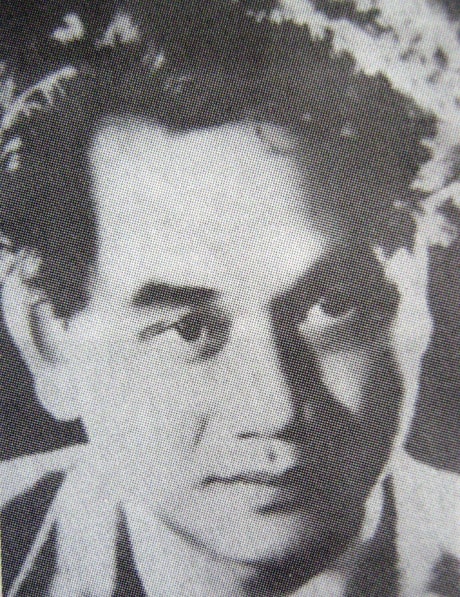An important day in the memory of poet Xuan Dieu
It was September 2, 1945.
(Baognehan.vn) -It was September 2, 1945.In the memoirUnforgettable years, General Vo Nguyen Giap wrote, the main idea of the Declaration was finished, Uncle Ho read it to the group, and he confessed that those were the most refreshing moments of his life.
Because before that, Uncle Ho had seen the truth that he could not rely on the charity of the capitalists, he could only rely on the struggle, on the strength of his own people. At this moment, he was representing the whole nation to reap the fruits of 80 years of struggle. That day, General Vo Nguyen Giap said: "We clearly saw the radiant joy on Uncle Ho's still yellow face."

Hanoi, September 2, 1945, a great day for the entire Vietnamese nation, for every Vietnamese person, whether they were present or not at the Hanoi Flag Tower Flower Garden (Ba Dinh Square). No one could sit still. The night was too long and now dawn was coming. Everyone stood in a certain line, flags and slogans in hand, pouring into the gathering place. People still had time to remember slogans they had never seen before: "Vietnam belongs to the Vietnamese", "Independence or death", "Down with French colonialism", "Support the Provisional Government", "Support President Ho Chi Minh", "Cheers to the Allied Mission"... At exactly 2:00 p.m. on September 2, it was possible to see the delegates getting out of their cars and walking up to the flagpole. Up there, within a few dozen square meters, there were dozens of people standing, including Uncle Ho - who had just been elected as President of the Provisional Revolutionary Government of the new Vietnam.
At exactly 2:00 p.m., on the high and solemn platform, before hundreds of thousands of people in the capital Hanoi, President Ho Chi Minh solemnly read the Declaration of Independence giving birth to the Democratic Republic of Vietnam. His words that day were calm, warm, concise, and resounding. It was not difficult to find in them deep emotions, resolute will, intelligence, and vitality in each sentence and each word, naturally entering people's hearts...
Among the crowd pouring into Ba Dinh that day, there was poet Xuan Dieu (1916-1985). Memories of “Independence Day September 2, 1945” (Xuan Dieu Collection, 1987), he clearly remembers the first time he saw President Ho Chi Minh from afar. He wore a white hat that had turned yellow, rubber sandals, and held a curved stick like an umbrella handle. His yellow khaki clothes were very impressive. When he read the Declaration of Independence, he heard a special voice that still seemed to be mixed with accents from around the world, a voice that still echoed the mountainous jungle... Then the nation was even more surprised when the President stood on a high platform, a white umbrella blocking the sun, in front of the radio and asked a surprising question: "Can you hear me clearly, my people?"

Poet Xuan Dieu
Poet Xuan Dieu emotionally wrote: “At this point, all the awkwardness between the President and the people disappeared like smoke, and an invisible electric current began to transmit between the President and the people... With a sudden question that no one expected, President Ho went beyond all rules, all protocol, all representatives, all government. President Ho was Uncle Ho of the Vietnamese people.
In response to the Chairman’s question “I said, did you hear clearly?”, a million people responded “Yes”! And that is all my deepest and most beloved memories, as well as those of all my compatriots after attending the Independence Day ceremony...”. Indeed, it is not easy to be able to write such sincere, emotional, subtle memoirs with tight and eloquent arguments!
In 1945, poet Xuan Dieu was 28 years old, full of youth and vitality. Before joining the Revolution, Xuan Dieu was a typical poet of the New Poetry movement (1932 - 1945). His poetry at that time captivated many young readers. And thanks to the passionate fire in him, along with the ability to perceive the times and the path of a great intellect and personality, when joining the Revolution, with Uncle Ho, Xuan Dieu brought his passion for poetry into the great passion of the national revolutionary struggle. Remember, in 1944, the poet joined the Viet Minh movement. In 1945, he participated in seizing power in Hanoi. Then after the August Revolution, as a delegate of the first National Assembly (1946 - 1960), poet Xuan Dieu worked in the National Salvation Culture Association, Tien Phong Magazine, Voice of Vietnam Radio, Vietnam Literature and Arts Association, Vietnam Writers Association... His creative ability was so abundant that in 1945 alone, joining the joy of life-changing events of the whole country, Xuan Dieu published 5 books, including two famous books to this day:Send fragrance to the wind(Poetry Collection) andNational flag(Collection of heroic songs).
Remembering and reviewing September 2, 1945, poet Xuan Dieu seemed to want to contribute to affirming a truth, the revolution is indeed a festival of the masses and in Vietnam, in the midst of that festival, the person who deserves the most honor is Uncle Ho. Uncle Ho's question at Ba Dinh that year "I said, did you hear clearly?" and the answer "Yes" of thousands of compatriots, truly conquered the poet. Here, perhaps French journalist Charles Phuocnio "met" poet Xuan Dieu when this foreign journalist made a very noteworthy comment after being received and interviewed by Uncle Ho on March 15, 1969: "He did not try to teach me any lesson about morality or politics. He only told old stories of the past. However, the more I listened, the more I realized that he had just talked about a major issue of the state, and had also taught me the most sublime moral and political lesson!".
Nguyen Van Hung
